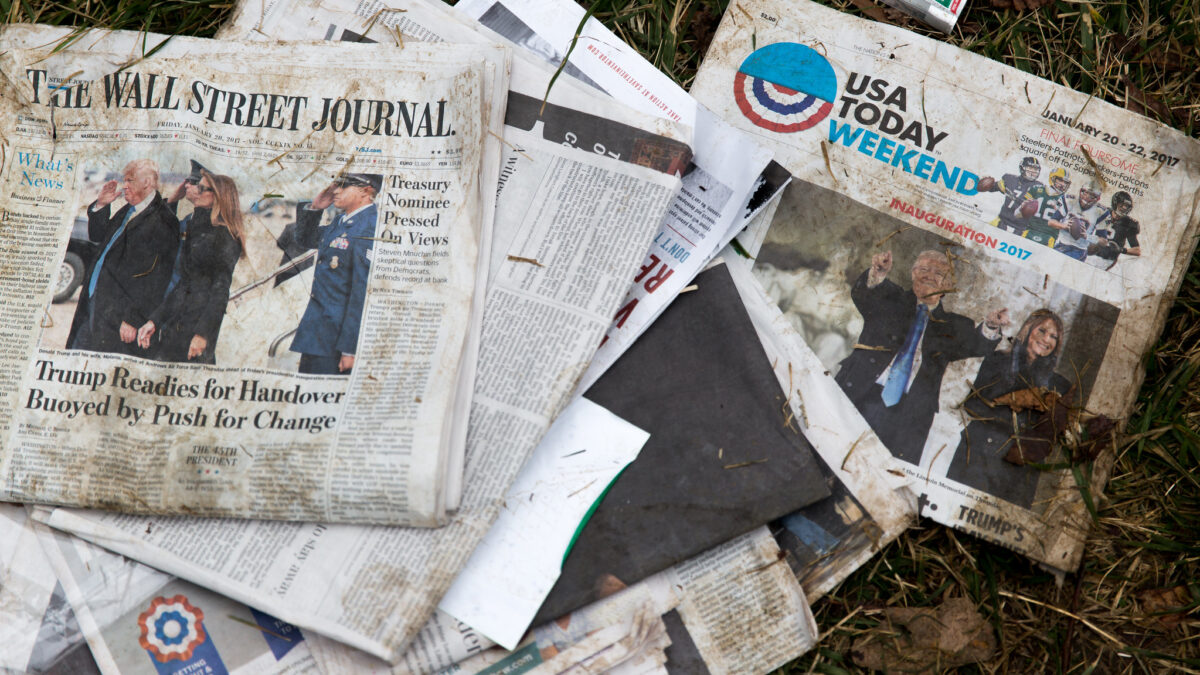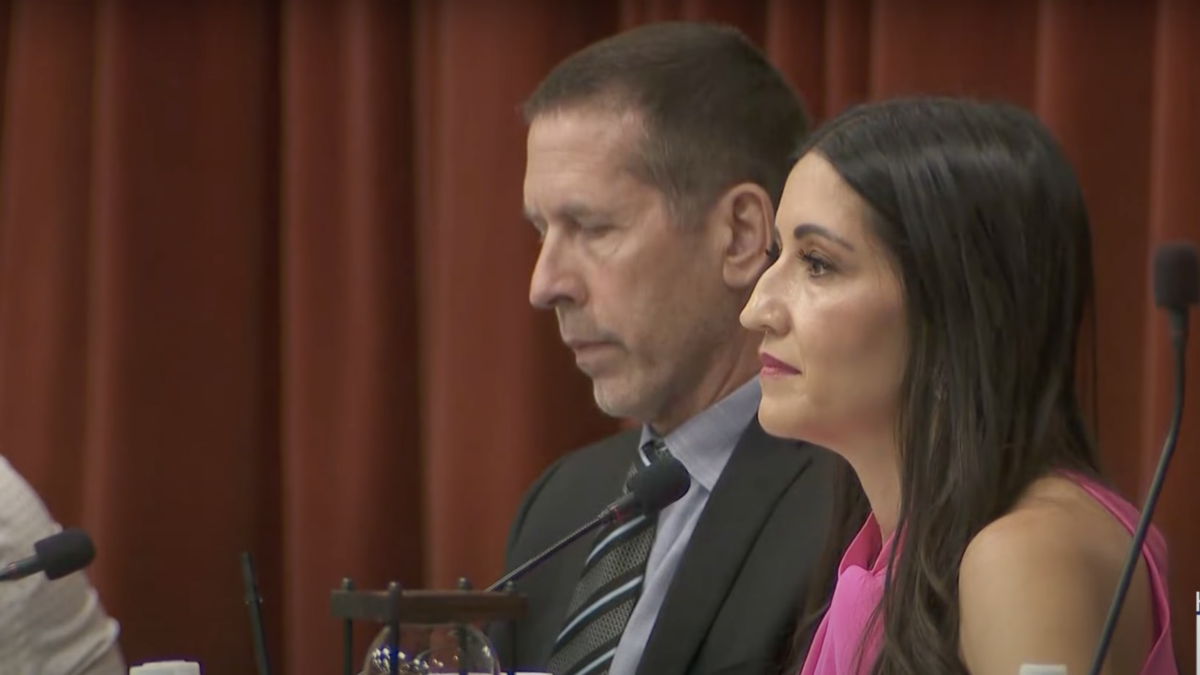Since the “Twitter Files” and congressional hearings outed NewsGuard as a player in the Censorship Complex, the media-ratings giant has been insisting it is nothing like the Global Disinformation Index, the discredited organization recently exposed for blacklisting conservative news outlets. But the two are far more alike than different.
An hour before independent journalists Matt Taibbi and Michael Shellenberger testified before the House Subcommittee on the Weaponization of the Federal Government last Thursday, Taibbi released the latest installment of the “Twitter Files.” “Some NGOs, like the GEC-funded Global Disinformation Index or the DOD-funded NewsGuard, not only see content moderation but apply subjective ‘risk’ or ‘reliability’ scores to media outlets, which can result in a reduction in revenue,” he wrote, underscoring the point in his congressional testimony.
Shellenberger expanded on Taibbi’s comments, testifying: “Both the Global Disinformation Index and NewsGuard are U.S. government-funded entities who are working to drive advertisers’ revenue away from disfavored publications and towards the ones they favor. This is totally inappropriate.”
By Friday morning, NewsGuard had emailed Taibbi to dispute the “government-funded” label. But as I detailed Monday, NewsGuard received a $750,000 grant from the Department of Defense — which it now disputes as a “licensing fee” — to develop a “Misinformation Fingerprint” program that uses AI and “social listening tools” to target so-called “disinformation.” This is in addition to its blacklisting of certain media outlets through assigning “risk” or “reliability” scores.
While NewsGuard’s co-CEOs told The Federalist they are “sensitive to the distinction” between their organization and the Global Disinformation Index and said the federal grant “had nothing to do with the government wanting us to rate websites,” the scandalous effects of both organizations are the same.
Same Results
The federal government’s funding of the Global Disinformation Index is itself a serious scandal. The organization also lacks transparency and applies its left-wing political bias to dole out unprofessional reviews and ratings targeting conservative media. But NewsGuard is wrong to believe it can separate itself from the Global Disinformation Index simply by calling its news source ratings “transparent” and “apolitical” and claiming to operate “in a totally different manner.”
While NewsGuard’s co-CEOs, Gordon Crovitz and Steven Brill, have been receptive to questions, some of their answers give pause. For instance, when asked how many articles NewsGuard selects for review and how it selects them, Brill said, “it depends on the site and its volume of content and the topics and substance of the content,” admitting “not everyone agrees with how we do this.” He then fell back on touting the company’s supposed transparency, pointing to his debate with the founder of the Daily Kos over NewsGuard’s methodology, publicly available on its webpage.
NewsGuard lacks transparency where it really matters though. The organization’s “it depends” attitude, paired with how it selects and reviews materials, leaves way too much room for mischief. Subjectivity is the admitted standard for evaluating “the site” and content volume, topics, and substance. Furthermore, my request for the list of articles reviewed for The Washington Post and The Federalist for 2020, 2021, and 2022 went answered, making it impossible to independently assess the process.
Even though NewsGuard repeatedly claims to be apolitical — a claim that’s contradicted by its history of rating news outlets — so what? The results remain the same: NewsGuard’s ratings cause important and true speech to be silenced, while false reporting is amplified thanks to the organization greenlighting it.
For example, The New York Times and The Washington Post both received 100 percent ratings from NewsGuard, yet both botched reporting on the Russia-collusion hoax, the Hunter Biden laptop story, and many details surrounding Covid — and those are merely the “big” stories and easy examples.
In contrast, The Federalist, which received one of NewsGuard’s worst ratings for supposedly “repeatedly publish[ing] false or misleading information in significant news and opinion stories,” out-reported those elite, legacy media outlets, accurately detailing those stories and many more. The Federalist also broke many important stories that never even made the pages of the other outlets.
How Much Don’t We Know?
NewsGuard pretends it isn’t silencing speech, claiming its approach is “American”: “Allow free speech but arm readers with the information they might want about who’s feeding them the news and what their standards are.” But for many, the warning labels serve as figurative earplugs or blinders, with users never accessing webpages with red alerts. Other speech falls silent because NewsGuard’s warnings keep advertising dollars from outlets.
Then there are potential censorship efforts we don’t know about. Was NewsGuard’s data the basis for any of the censorship requests the government made to Twitter and other tech companies? And what precisely does the DOD plan to do with the program NewsGuard developed to assist the government in identifying supposed “disinformation”?
The last few years have shown the “disinformation” business is a growing industry, and the DOD, the State Department, and the entire alphabet-soup of federal agencies are grooming an army of future government contractors to provide the means and manpower to censor Americans.
Then there are the nonprofits and academic institutions: Did any of those organizations use NewsGuard’s data to flag material for Twitter? Do any of the Big Tech companies incorporate NewsGuard’s data when determining “shadowbanning”? What about search engines? Do they use NewsGuard’s data to determine result rankings?
A Threat to Speech
Contrary to NewsGuard’s claim that it doesn’t “stop anything from being published and [doesn’t] want to,” it provides the tools to allow both government and non-governmental actors to regulate — and ban — content. Thus the “private company” retort is no defense.
“Free speech” is not an important principle because it is constitutionally protected; it is constitutionally protected because it is an important principle — a first principle.
Constraints on speech imposed by corporations, nonprofits, and academia inflict the same harms to society as government censorship. Like the company towns of the early 20th century, where Big Business owned the sidewalks, parks, and public square, today Big Tech owns the channels of communication and can silence speech on a scale far surpassing any statute passed by Congress.
But even worse, Big Tech is in bed with Big Brother and joined daily by a growing group of think tanks, academic institutions, and media outlets. Together this Censorship Complex dictates what truth Americans can know and condemns everything else as misinformation, disinformation, or mal-information.
NewsGuard provides the means to do this, meaning at its core, it is no different than the Global Disinformation Index — except it turns a profit for its efforts.









